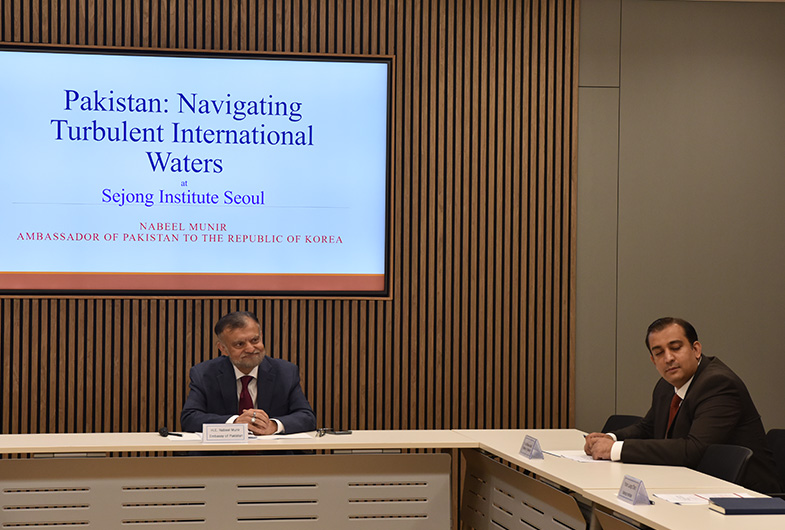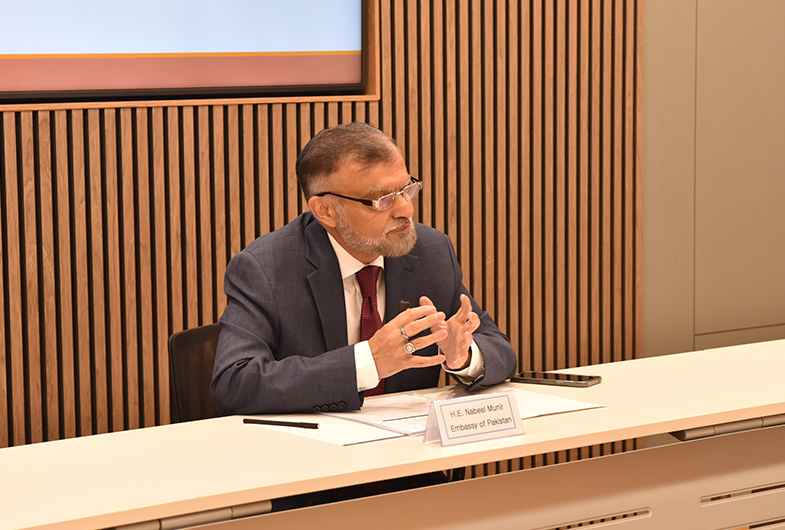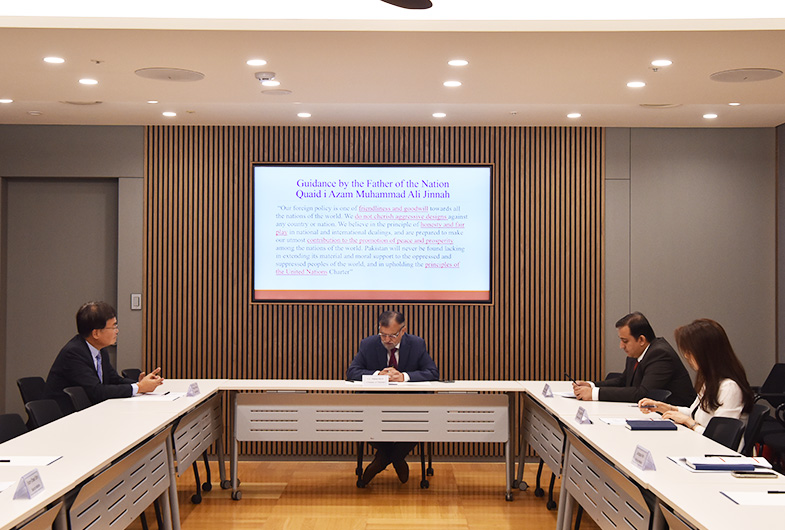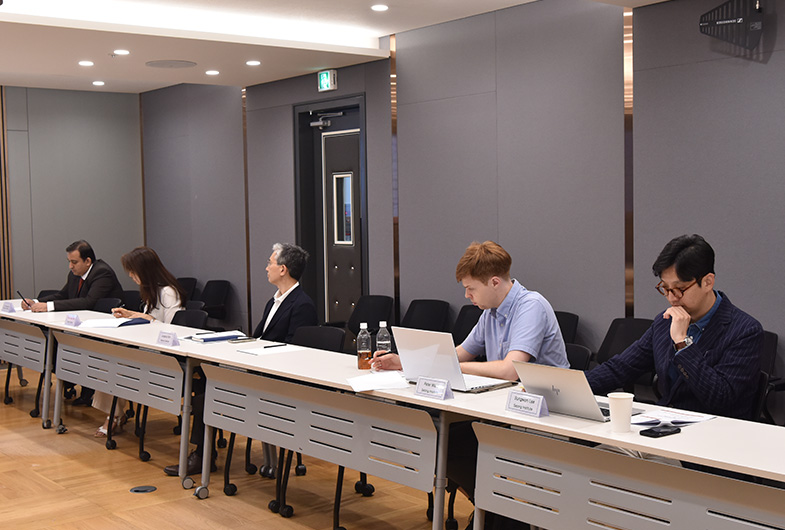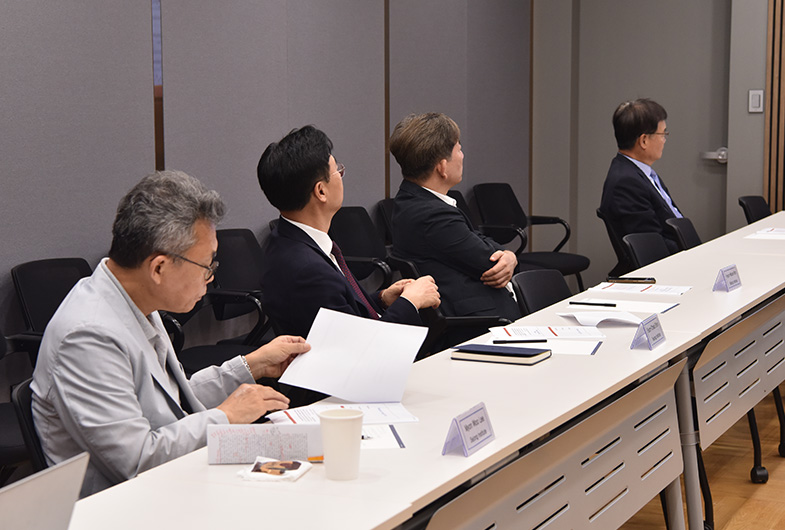On August 27, 2024 (Tue), the Sejong Institute held a special lecture titled "Pakistan: Navigating Turbulent International Waters," presented by H.E. Nabeel Munir, the Ambassador of Pakistan to South Korea.
At the event, the Pakistani Embassy was represented by H.E. Nabeel Munir, the Ambassador, and Dr. Ali Waqas Malik, the Deputy Chief of Mission.
At the event, the Sejong Institute was attended by Chairman Yong-Joon Lee, President Hyun-Wook Kim, Vice President Yoon-Jung Choi, Center Director Sungwon Lee, Principal Fellow Myun-Woo Lee, Principal Fellow Jung-Sup Kim, Principal Fellow Bum-Cheol Shin, and Research Fellow Peter Ward.
The key points are as follows:
□ Pakistan’s Foreign Policy
Pakistan's foreign policy focuses on peace, adherence to UN resolutions, and economic cooperation. The main priorities are protecting nature resources, respecting human rights, and supporting multilateralism. Pakistan aims to have friendly relations with both the United States and China, moving away from Cold War-era attitudes to seek mutual benefits through a win-win partnership. For the Ukraine conflict, Pakistan supports a peaceful solution based on international law and UN principles. The instability in Afghanistan is causing terrorism and economic problems, which significantly impact Pakistan's economy.
□ Diplomatic Environment
Pakistan faces a challenging diplomatic situation because it is surrounded by Iran, India, China, and Afghanistan. Changes in global and regional policies impact Pakistan’s foreign policy. Even though Pakistan and South Korea are far apart, both countries are of similar size and play important roles in global and regional affairs. They also have many similarities.
□ Pakistan's Stance on US-China Rivalry and Global Conflicts
As the competition between the US and China grows, Pakistan faces indirect pressure to choose sides. Despite this, Pakistan has not been explicitly pressured to align with either country. On the Ukraine issue, Pakistan stays neutral and works to prevent the conflict from escalating through diplomatic solutions. Pakistan is also deeply concerned about the ongoing issues in the Middle East, particularly the conflict in Gaza.
□ Pakistan's View on the Korean Peninsula and Relations with North Korea
Pakistan is concerned about how North Korea's actions and the strategic alliance between Russia and North Korea affect regional security. Pakistan follows UN Security Council resolutions and believes that peace and stability in Korea should come from dialogue and negotiation. Pakistan views the denuclearization of North Korea as a key factor for stability on the Korean Peninsula.
□ Pakistan's Cooperation with South Korea
Pakistan and South Korea are working together in many areas beyond just security, including science and technology, investment, trade, culture, and tourism. However, their cooperation in defense is limited by the Wassenaar Arrangement and intellectual property issues.

